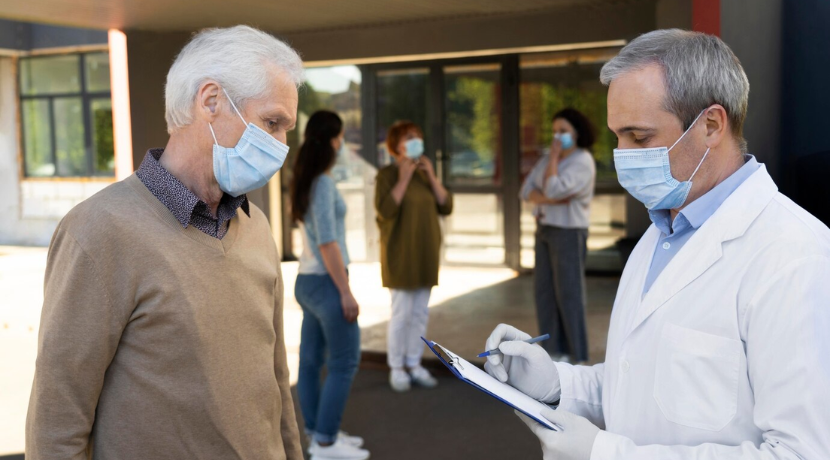Spain boasts a highly regarded healthcare system that combines public and private services, ensuring residents and visitors have access to quality medical care. Understanding how to navigate both public and private healthcare services can help you make the most of the available resources and choose the best options for your needs. Here’s a comprehensive guide to using public and private healthcare services in Spain.
- Public Healthcare System
Spain’s public healthcare system, known as the Sistema Nacional de Salud (SNS), provides comprehensive medical services to residents and EU/EEA citizens.
Eligibility
- Residents: Spanish citizens and legal residents are entitled to access the public healthcare system. You need to register with your local health centre (centro de salud) and obtain a health card (tarjeta sanitaria) to receive services.
- EU/EEA Citizens: EU/EEA citizens can use their European Health Insurance Card (EHIC) for temporary stays. For long-term residency, they should register with the SNS.
- Non-EU Citizens: Non-EU citizens may need to secure private health insurance unless covered by reciprocal healthcare agreements or their residency permits.
Services Provided
The public healthcare system covers a wide range of services, including:
- General Practitioner (GP) Visits: Access to GPs for routine check-ups, prescriptions, and referrals to specialists.
- Specialist Care: Referral-based access to specialist doctors in various fields, such as cardiology, dermatology, and orthopaedics.
- Hospital Services: Comprehensive hospital care, including emergency services, surgeries, and maternity care.
- Preventive Care: Vaccinations, health screenings, and preventive treatments.
Costs
- Free Services: Many services are free at the point of use, including GP visits and hospital stays.
- Co-Payments: Some services, such as prescription medications, may require a co-payment. The amount depends on your income and residency status.
- Private Healthcare System
Private healthcare services in Spain offer additional options for those seeking faster access, more personalised care, or treatments not covered by the public system.
Benefits
- Shorter Waiting Times: Private healthcare typically offers shorter waiting times for appointments and treatments compared to the public system.
- English-Speaking Doctors: Many private clinics and hospitals cater to expats and have English-speaking doctors and staff.
- Comprehensive Coverage: Private insurance often includes a wider range of services, such as dental care, alternative therapies, and more flexible access to specialists.
Choosing Private Healthcare
- Private Insurance: To access private healthcare, you’ll need private health insurance. Major providers include Sanitas, Mapfre, Adeslas, and Cigna.
- Direct Payment: Some private clinics and hospitals accept direct payments if you prefer to pay out-of-pocket for specific treatments.
Costs
- Insurance Premiums: The cost of private health insurance varies depending on the coverage, age, and health condition. Premiums can range from €50 to €200 per month.
- Service Fees: If paying directly, costs can vary significantly depending on the treatment. A GP visit may cost around €50-€100, while specialist consultations and treatments can be higher.
- Combining Public and Private Healthcare
Many residents and expats choose to combine public and private healthcare to benefit from both systems.
- Dual Coverage: Having private insurance alongside access to the public system can provide comprehensive coverage and flexibility. You can use the public system for routine care and emergencies, while private insurance covers additional services and faster access to specialists.
- Health Plans: Some private insurers offer health plans that complement public healthcare, covering services like private rooms in public hospitals, additional dental care, and international coverage.
- Accessing Healthcare Services
Registering for Public Healthcare
- NIE Number: Obtain your Foreigner Identification Number (NIE) if you are a resident.
- Social Security Number: Ensure you have a social security number if employed or self-employed.
- Health Centre Registration: Register at your local health centre with your NIE, social security number, and proof of address to get your health card.
Finding Private Healthcare Providers
- Insurance Network: If you have private insurance, check the network of clinics and hospitals covered by your plan.
- Recommendations: Seek recommendations from other expats or local residents for reputable private healthcare providers.
- Online Directories: Use online directories to find private clinics and hospitals in your area.
Emergency Services
- Emergency Number: Dial 112 for emergencies, which connects you to ambulance, fire, and police services.
- Public Hospitals: For serious emergencies, public hospitals provide excellent emergency care.
- Private Hospitals: Private hospitals also offer emergency services, often with shorter waiting times.
- Important Considerations
Language Barrier
- Language Support: While many private healthcare providers offer services in English, public healthcare staff may have limited English proficiency. Learning basic Spanish medical terms can be helpful.
- Translation Services: Some clinics offer translation services, or you can hire a translator for medical appointments.
Healthcare Quality
- High Standards: Both public and private healthcare in Spain maintain high standards of care and hygiene.
- Accreditation: Choose private healthcare providers accredited by recognised health authorities to ensure quality care.
Conclusion
Navigating the healthcare system in Spain involves understanding the options available in both the public and private sectors. By registering for public healthcare, considering private health insurance, and knowing how to access services, you can ensure comprehensive and timely medical care. Combining the strengths of both systems allows you to benefit from Spain’s excellent healthcare infrastructure while enjoying peace of mind and flexibility in your healthcare choices.

